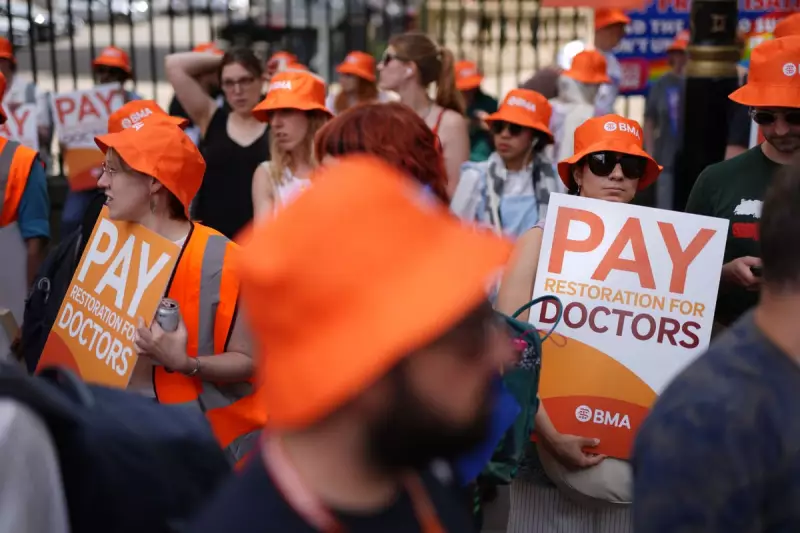
Health Secretary Wes Streeting has issued a last-minute, urgent plea to resident doctors, urging them to call off a major five-day strike scheduled to begin this Friday. The industrial action, organised by the British Medical Association (BMA), threatens to cause significant disruption across the National Health Service.
A Final Appeal and a Firm Stance on Pay
In a series of media interviews on Wednesday morning, Mr Streeting revealed that his first call after finishing with the press would be to the chair of the BMA's resident doctors' committee. He stated he would make a final appeal for them to "do the right thing" and cancel the walkout. However, he remained firm on the central issue of pay, declaring he would not move further on the matter.
This stance comes despite the BMA's call for a 26% pay uplift to counter what the union describes as years of pay erosion. Mr Streeting countered this by asserting that resident doctors have already seen an average increase in pay of 28.9% from the government and have received the highest pay increases in the public sector for two consecutive years.
NHS Prepares for Unprecedented Strike Impact
With the strike set to commence at 7am on Friday, NHS England is taking drastic measures to maintain services. Sir Jim Mackey, NHS England's chief executive, has written to trust leaders with a clear directive: the majority of services must continue to operate.
He called for a "laser focus" on four critical areas to mitigate the strike's impact. These priorities include:
- Maintaining emergency care and maternity services.
- Ensuring the efficient discharge of patients who are fit to go home.
- Continuing at least 95% of elective activity compared to normal expectations.
- Protecting priority treatments, such as urgent planned surgery and cancer care.
Sir Jim emphasised that rescheduling appointments and operations should "only happen in exceptional circumstances to safeguard patient safety." Mr Streeting acknowledged the challenge, stating, "I'm not pretending it's going to be easy... but we've got to do everything we can to keep the show on the road." He also stressed that patient safety is paramount during the industrial action.
Broken Negotiations and Accusations
The Health Secretary expressed frustration with the BMA's position, revealing that he had offered concessions on issues other than pay. He said he had proposed measures to cover out-of-pocket expenses for doctors, such as exam fees, and to create 1,000 extra training jobs that are desperately needed.
However, he claimed the BMA consistently returned to the issue of pay. Mr Streeting warned that the cost of the strike—estimated at just shy of a quarter of a billion pounds—would make some of his additional offers unaffordable this year. He accused the doctors of "shooting themselves in the foot" by setting back the NHS recovery and disrupting patient care.
In response, Dr Jack Fletcher, chairman of the BMA's resident doctors' committee, stated that no new offer or sufficient progress had been made to call off the action. He argued that the government's position would still see thousands of resident doctors turned away from jobs this year and backs a real-terms pay cut for the following year. Dr Fletcher confirmed that without movement from the government, the strike would proceed as planned.





